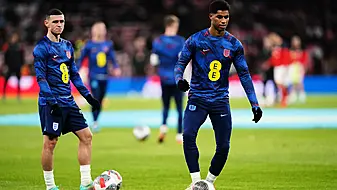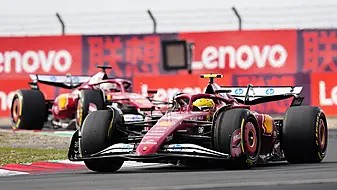British Cycling has announced that transgender cyclist Emily Bridges is ineligible to race in the women’s event at the British National Omnium Championships this weekend.
Bridges was due to compete in the event in Derby on Saturday alongside a star-studded field including against five-time Olympic champion Dame Laura Kenny.
The 21-year-old had been allowed to enter under British Cycling’s transgender and non-binary participation policy.
But British Cycling now says it has been informed by the Union Cycliste Internationale that Bridges is not eligible to compete.
Today we're calling for a coalition to address transgender and non-binary participation in elite sport, and can provide an update on this weekend's British National Omnium Championships.
Read more: https://t.co/MYjV2scXfn pic.twitter.com/ETbxYVzIfK— British Cycling (@BritishCycling) March 30, 2022
“At British Cycling, we believe that transgender and non-binary people should be able to find a home, feel welcome and included, and be celebrated in our sport,” read a statement from the governing body.
“Under the British Cycling transgender and non-binary participation policy, Emily Bridges was due to participate in the British National Omnium Championships on Saturday, April 2.
“We have now been informed by the Union Cycliste Internationale that, under their current guidelines, Emily is not eligible to participate in this event.
“We have been in close discussions with the UCI regarding Emily’s participation this weekend and have also engaged closely with Emily and her family regarding her transition and involvement in elite competitions. We acknowledge the decision of the UCI with regards to Emily’s participation, however we fully recognise her disappointment with today’s decision.”
Bridges – winner of the men’s points race at the British Universities’ championships in Glasgow in February – began hormone therapy last year.
We also understand that in elite sports the concept of fairness is essential
British Cycling’s regulations, updated in January this year, require riders to have had testosterone levels below five nanomoles per litre for a 12-month period prior to competition.
The initial decision to allow Bridges to race caused major controversy with critics claiming trans athletes may have an advantage over their fellow competitors, and British Cycling has called for clarity across all sports surrounding the issue.
“We believe all participants within our sport deserve more clarity and understanding around participation in elite competitions and we will continue to work with the UCI on both Emily’s case and the wider situation with regards to this issue,” it added.
“We also understand that in elite sports the concept of fairness is essential. For this reason, British Cycling is today calling for a coalition to share, learn and understand more about how we can achieve fairness in a way that maintains the dignity and respect of all athletes.
“We know that some of these conversations are happening in pockets of the sporting world, but we want to encourage all sporting governing bodies, athletes, the transgender and non-binary athlete community, the Government and beyond to come together and find a better answer.”
Sports Minister Nigel Huddleston earlier said sport must be a level playing field for all, but accepted there is an “uncomfortable journey” ahead in striving to deliver inclusivity for transgender athletes.







